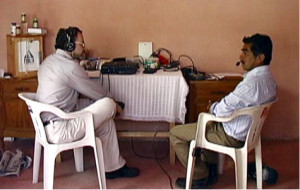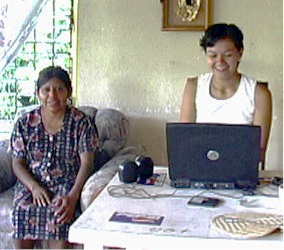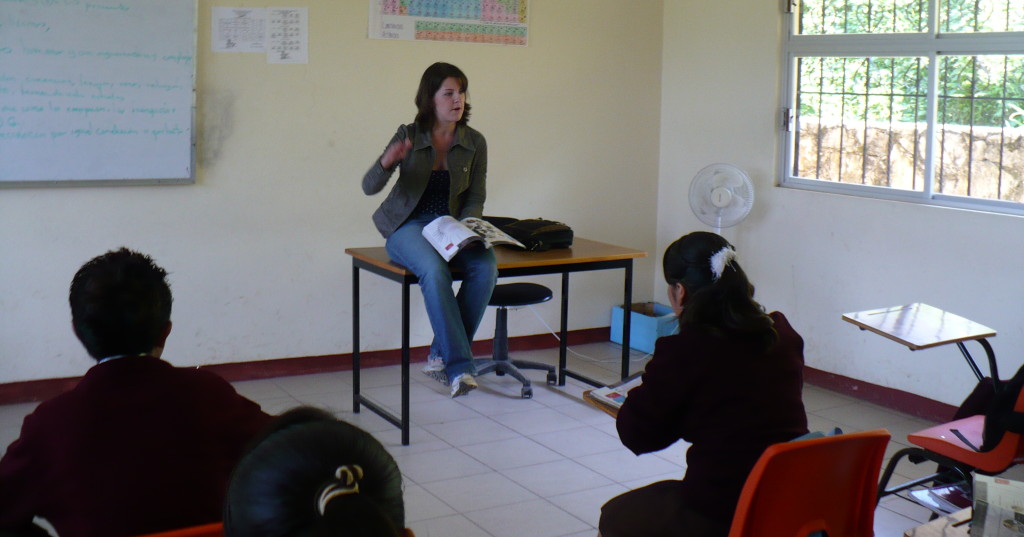
David Beck records Gaspar Aguilar telling a traditional narrative.
Project members have been working in the field since 1998, primarily in the villages of Patla and Chicontla. Our project focuses on the collection of naturalistic data in the form of narratives, traditional stories, and conversations with other native speakers, as well as the collection of phonetic, lexical, grammatical, and sociolinguistic data through interviews, guided elicitation, and a variety of controlled tasks.

Vianey Varela works with the late Catalina Fuentes transcribing child language videos.
Other projects have included the use of elicitation tools designed by the MesoSpace Project and the Max Planck Institute in Nijmegen to elicit the uses of body part and spatial expressions. In order to study language acquisition, children ages 2 – 3.5 years old were recorded on a bi-weekly basis interacting with parents and siblings in their homes. Longitudinal data was also recorded on school-age children’s use of locative expressions through the application of a structured elicitation task. Work is continuing on the acoustic properties of Totonac vowels and other phonetic properties of the language. We have also been involved in the field collection and identification of botanical specimens, as well as information about their traditional uses. Work continues on the problem of language shift and language loss in Upper Necaxa and other Totonac communities.

Ryan Klint works on transcription with Porfirio Sampayo.
Fieldwork typically takes place in the summer and involves stays in the field of 2–6 weeks, usually hosted by community members who support our efforts and are able to provide food and lodging. Consultants can be recorded and interviewed at our home base, either the home in which we are staying or some other suitable location, or we make home-visits with mobile recording equipment, especially for speakers who are elderly and feel more comfortable in their own homes. A great deal of time in the field is given to transcription, since it is very time consuming and labour intensive. Once a recording has been transcribed, it is reviewed with other speakers to check for errors and over-all reliability.
Research on language shift and vitality is conducted through interviews with families in their homes and through observation of the use of the two languages across domains and age groups in the community, for example in the home, at school, at play, at work, in church, at the market, and in political meetings.

